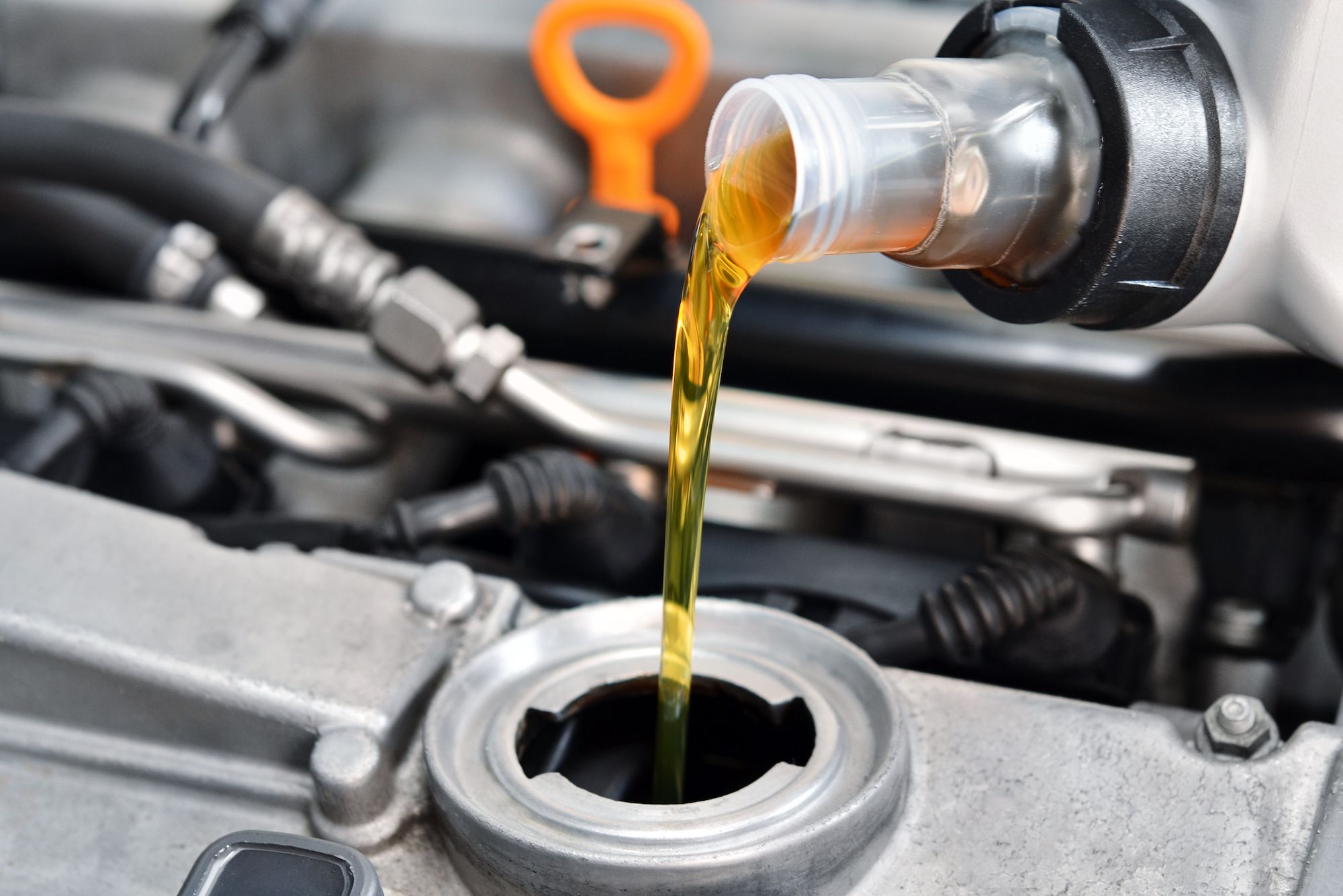All Categories
Featured
Liable for integrating the rotation of the crankshaft and camshaft, the timing belt makes certain the engine's valves open and close at the appropriate times during the burning procedure. If the timing belt stops working, it can result in severe engine damage.
What Is a Timing Belt? The timing belt is a long, toothed rubber or composite belt that attaches the crankshaft to the camshaft(s) in an inner burning engine. Its work is to keep the engine's shutoffs and pistons in sync, making certain the engine runs efficiently. The timing belt also manages other vital engine features like the water pump and the power steering pump, depending upon the car.
![]()
Without the correct timing, the engine's valves and pistons can clash, resulting in pricey and substantial damages. For that reason, replacing the timing belt on time is just one of the most effective methods to ensure your engine runs at its best and avoid pricey repairs.
Why Timing Belt Replacement Matters. Protecting Against Catastrophic Engine Damages: The most significant danger of not changing a worn timing belt is engine failure. Replacing the timing belt at the suggested periods is the best method to protect against such disastrous damage, saving you from the tension and high expense of engine fixings or substitute.
![]()
Preserving Engine Performance: A timing belt that remains in good problem makes sure that all engine parts function in best consistency. If the timing belt is put on or extended, it can cause the engine to shed power, experience harsh idling, or battle to start. By replacing the timing belt routinely, you can maintain your engine going for peak efficiency, which helps maintain optimum gas economic climate and efficiency.
Staying Clear Of Unexpected Breakdowns: A broken timing belt can create your engine to quit suddenly, potentially leaving you stranded in the center of a journey. By changing your timing belt on time, you decrease the risk of sudden breakdowns that could leave you in a dangerous or inconvenient circumstance. Normal maintenance minimizes the chances of experiencing these sort of disturbances, helping you stay on the roadway longer without worrying about your engine falling short.
Cost-efficient Upkeep: Timing belt substitute is much less costly than fixing or replacing an engine that's been harmed because of a timing belt failing. While the cost of replacing the timing belt might differ relying on your automobile and its area, it is much more cost effective than the costs connected with major engine repair services or replacements. Changing your timing belt at the recommended periods can conserve you a significant quantity of money over the long run by stopping damages to your engine.
When Should You Replace Your Timing Belt? The timing belt does not last permanently, and a lot of suppliers recommend replacing it between 60,000 and 100,000 miles. Nevertheless, the exact timing depends upon your automobile's make, version, and driving conditions, so it's important to examine your owner's handbook for specific guidance.
Indications that your timing belt may require interest consist of uncommon engine sounds (such as a piercing whining or ticking audio), problem starting the engine, or a decline in engine performance. If you discover any of these indicators, it's important to have the timing belt evaluated by a specialist mechanic.
![]()
Conclusion. The timing belt is a tiny yet vital component of your engine, and normal substitute is crucial to keeping your lorry's performance and protecting against pricey damages. By remaining on top of timing belt maintenance, you'll ensure your engine operates efficiently, stay clear of unforeseen breakdowns, and shield your automobile from major repair services. Keep an eye on your automobile's recommended timing belt replacement routine, and always talk to a trusted technician to keep your engine running smoothly for years to come.
What Is a Timing Belt? The timing belt is a long, toothed rubber or composite belt that attaches the crankshaft to the camshaft(s) in an inner burning engine. Its work is to keep the engine's shutoffs and pistons in sync, making certain the engine runs efficiently. The timing belt also manages other vital engine features like the water pump and the power steering pump, depending upon the car.

Without the correct timing, the engine's valves and pistons can clash, resulting in pricey and substantial damages. For that reason, replacing the timing belt on time is just one of the most effective methods to ensure your engine runs at its best and avoid pricey repairs.
Why Timing Belt Replacement Matters. Protecting Against Catastrophic Engine Damages: The most significant danger of not changing a worn timing belt is engine failure. Replacing the timing belt at the suggested periods is the best method to protect against such disastrous damage, saving you from the tension and high expense of engine fixings or substitute.

Preserving Engine Performance: A timing belt that remains in good problem makes sure that all engine parts function in best consistency. If the timing belt is put on or extended, it can cause the engine to shed power, experience harsh idling, or battle to start. By replacing the timing belt routinely, you can maintain your engine going for peak efficiency, which helps maintain optimum gas economic climate and efficiency.
Staying Clear Of Unexpected Breakdowns: A broken timing belt can create your engine to quit suddenly, potentially leaving you stranded in the center of a journey. By changing your timing belt on time, you decrease the risk of sudden breakdowns that could leave you in a dangerous or inconvenient circumstance. Normal maintenance minimizes the chances of experiencing these sort of disturbances, helping you stay on the roadway longer without worrying about your engine falling short.
Cost-efficient Upkeep: Timing belt substitute is much less costly than fixing or replacing an engine that's been harmed because of a timing belt failing. While the cost of replacing the timing belt might differ relying on your automobile and its area, it is much more cost effective than the costs connected with major engine repair services or replacements. Changing your timing belt at the recommended periods can conserve you a significant quantity of money over the long run by stopping damages to your engine.
When Should You Replace Your Timing Belt? The timing belt does not last permanently, and a lot of suppliers recommend replacing it between 60,000 and 100,000 miles. Nevertheless, the exact timing depends upon your automobile's make, version, and driving conditions, so it's important to examine your owner's handbook for specific guidance.
Indications that your timing belt may require interest consist of uncommon engine sounds (such as a piercing whining or ticking audio), problem starting the engine, or a decline in engine performance. If you discover any of these indicators, it's important to have the timing belt evaluated by a specialist mechanic.

Conclusion. The timing belt is a tiny yet vital component of your engine, and normal substitute is crucial to keeping your lorry's performance and protecting against pricey damages. By remaining on top of timing belt maintenance, you'll ensure your engine operates efficiently, stay clear of unforeseen breakdowns, and shield your automobile from major repair services. Keep an eye on your automobile's recommended timing belt replacement routine, and always talk to a trusted technician to keep your engine running smoothly for years to come.
Latest Posts
Protect Your Home with Gutter Solutions for Illinois Climate
Published Apr 20, 25
1 min read
Montclare Auto Repair: The Trusted Choice for Dependable Repair Solutions
Published Apr 19, 25
2 min read
Why Yesterday's Creekside Tavern is the Perfect Area for Your Next Evening Out
Published Apr 19, 25
2 min read
More
Latest Posts
Protect Your Home with Gutter Solutions for Illinois Climate
Published Apr 20, 25
1 min read
Montclare Auto Repair: The Trusted Choice for Dependable Repair Solutions
Published Apr 19, 25
2 min read
Why Yesterday's Creekside Tavern is the Perfect Area for Your Next Evening Out
Published Apr 19, 25
2 min read